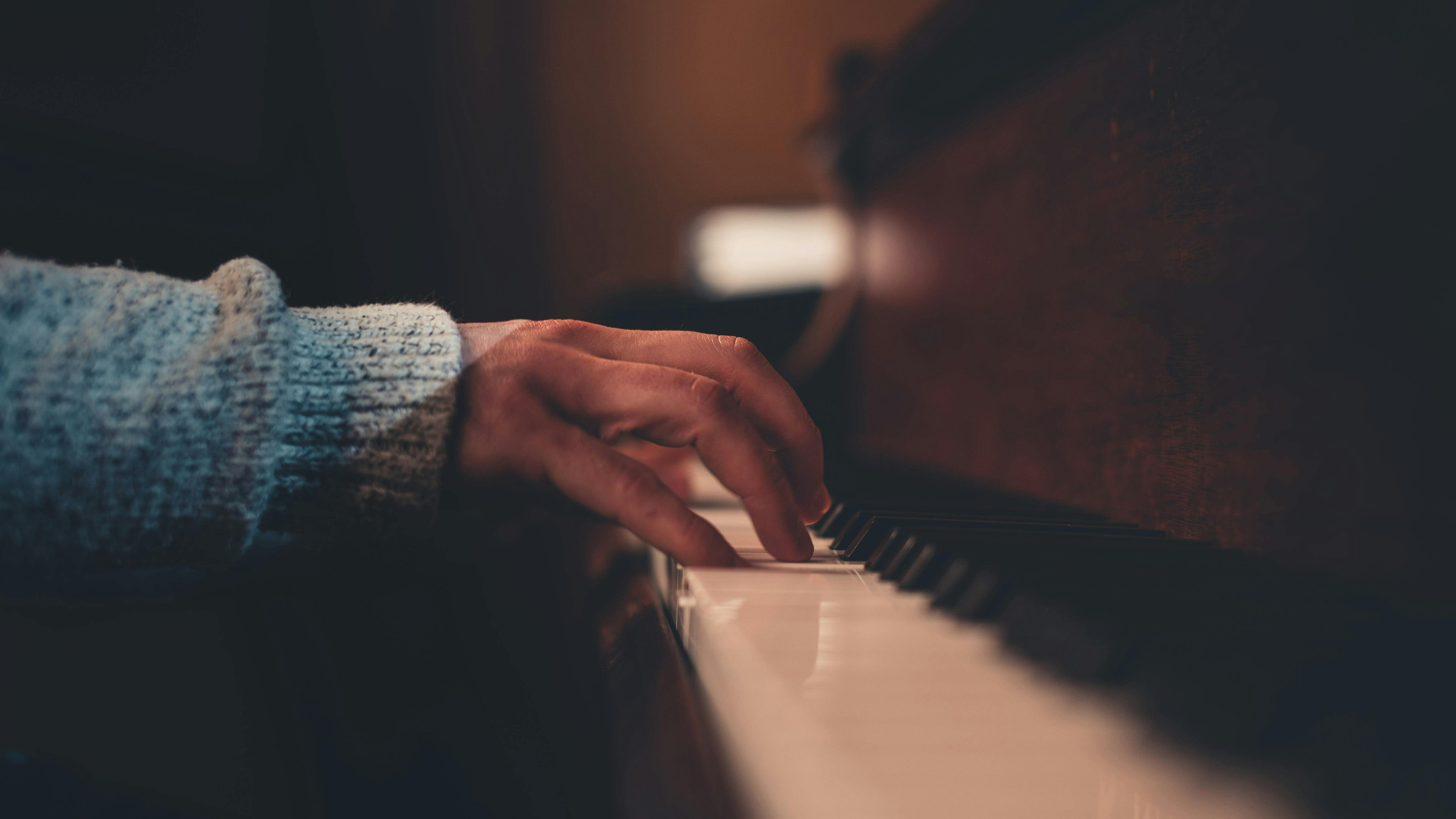Listen to the article's playlist as you read:
Joep Beving: »Hermetism« (2022)
It’s not an easy task to select only one piano-led recording by Dutch composer and pianist Joep Beving, given he has so many superlative ones. But Hermetism, his fourth official album release, is not only a beautiful listen but conceptually compelling too. Inspired by an ancient philosophical and religious movement (the Hermetism of the title) that tackles the universal laws of nature, including principles of rhythm and existential balance, the music here is intended to be both contemplative and comforting. Played exclusively on Beving’s beloved upright piano, the simple, elegant harmonies—Bach-esque in places—maintain the artist’s trademark peaceful minimalism but add a dash of spiritual healing.
Ólafur Arnalds: »re:member« (2018)
This 2018 recording sees Icelandic maestro Ólafur Arnalds pioneer a piece of software called STRATUS, which allows the user to trigger two player pianos with a central piano, thereby generating waves of fluttering ambient sound. The twelve delicate, intricate compositions on the album are embellished further by orchestral strings, occasional vocals, light, scattered rhythms and glitchy, Múm-like electronica, resulting in one of the composer’s more maximal projects. That said, most of the songs are elegantly restrained and immaculately arranged, undulating mood-wise between the pensive and the joyful.
Ludovico Einaudi: »Seven Days Walking« (2019)
This epic seven-album project by Italian pianist and composer Ludovico Einaudi was created after a walking trip he made in the Swiss Alps. Einaudi walked the same route on seven different days, noting the subtle variations each day in terms of light, weather and mood, chronicling the walks with polaroid photographs. He then set about writing compositions to reflect their nuances, collecting his creations together on the album Day One, which includes song titles such as Low Mist, A Sense of Symmetry, and Ascent. These titles, and others, are repeated across the subsequent six albums, which include strings from Frederico Mecozzi and Redi Hasa, but with compositional variations to reflect his experience. Whether listened to consecutively or randomised, the resultant shifting soundscape is—to paraphrase Elliott Smith—a beautiful place to get lost.
Nils Frahm: »Felt« (2011)
Nils Frahm’s 2011 masterpiece is named after the fabric he used to damp down the sound of his piano to avoid annoying his neighbours. This muted sound can be heard clearly right from the off, at the beginning of opening song “Keep,” and as the recording progresses we are treated to more unusual and intimate sounds—moving pedals, pressed keys, creaking floorboards, Frahm’s own breathing—thanks to a deliberately close recording during late night sessions at his home. Although the opener and closing track (“More”) bristle with brightness and light, the majority of the record feels introspective and wistful.
Chilly Gonzales: »Solo Piano« (2004)
It was a surprise to say the least when Canadian rapper, producer and Peaches, Feist and Daft Punk collaborator Chilly Gonzales dropped this debut album of solo piano pieces. Turns out he learned piano growing up but didn’t really play for years; that changed after recording (and arranging) for a Jane Birkin album in Paris, which led him back to the ivories and this collection of accessible, pop-influenced compositions. Influenced by the likes of Satie, Gershwin, Debussy and Keith Jarrett, it comes with playful nods to jazz and consists of warm, impressionistic pieces that are a peaceful pleasure to listen to.
Poppy Ackroyd: »Resolve« (2018)
Classically-trained English musician and composer Poppy Ackroyd’s third album followed on from her wonderful 2017 mini-album of solo piano re-workings. Resolve is much more expansive, featuring several guest musicians (Manu Delago on harp, Mike Lesirge on clarinets and flute, Jo Quail on cello), though it’s Ackroyd’s piano playing that remains the centrepiece and highlight. Using both an upright and grand piano, she not only plays their keys but their insides too, plucking and dabbing at the strings with fingers, drumsticks and plectrums to create rhythmic elements that are then carefully re-arranged along with other sounds and textures. It’s a sonically striking and airily hypnotic listen, ranging from wild, climbing peaks and quieter, haunting moments, showcasing Ackroyd’s impressive talents to the full.
Hania Rani: »Esja« (2019)
Esja is Polish composer, musician and vocalist Hania Rani’s first solo album, and for it, she focuses solely on piano. Recorded between Warsaw, Reykjavik (Esja is the name of the local mountain there) and Amsterdam, her playing is mellifluous and graceful throughout. The album unfurls gently from the quiet build of opener Eden, through a series of captivating vignettes including the charming, Debussy-esque Sun, the nostalgic Luka and the shimmering Glass. Despite the virtuoso playing and dynamic arrangements, it’s a wonderfully insouciant and evocative listen.
Max Richter: »Sleep (Piano Edition)« (2024)
One of neoclassical music’s most prolific and best-known composers, Max Richter has worked in the fields of electronica, film scores and conceptual experimentalism. Although he has never composed a whole album of piano works, on this edition of his best-selling Sleep project, he re-composes three of his favourite compositions—originally written for vocals and strings—to pure piano (with the occasional tape delay effect), extending them to several minutes long to create a serene mini-album that’s custom-built to nod off to.

